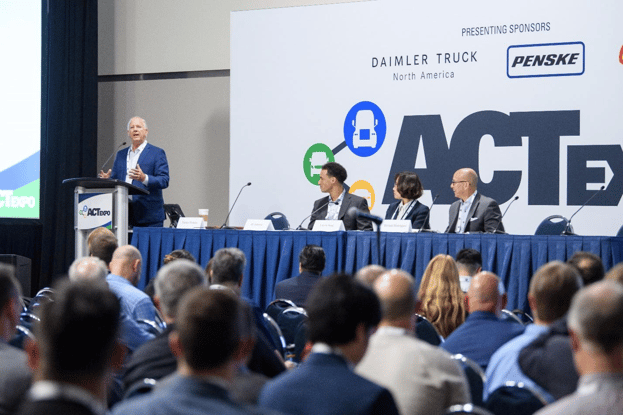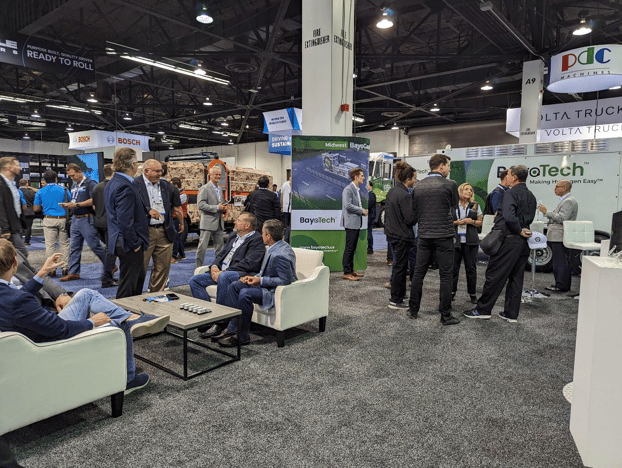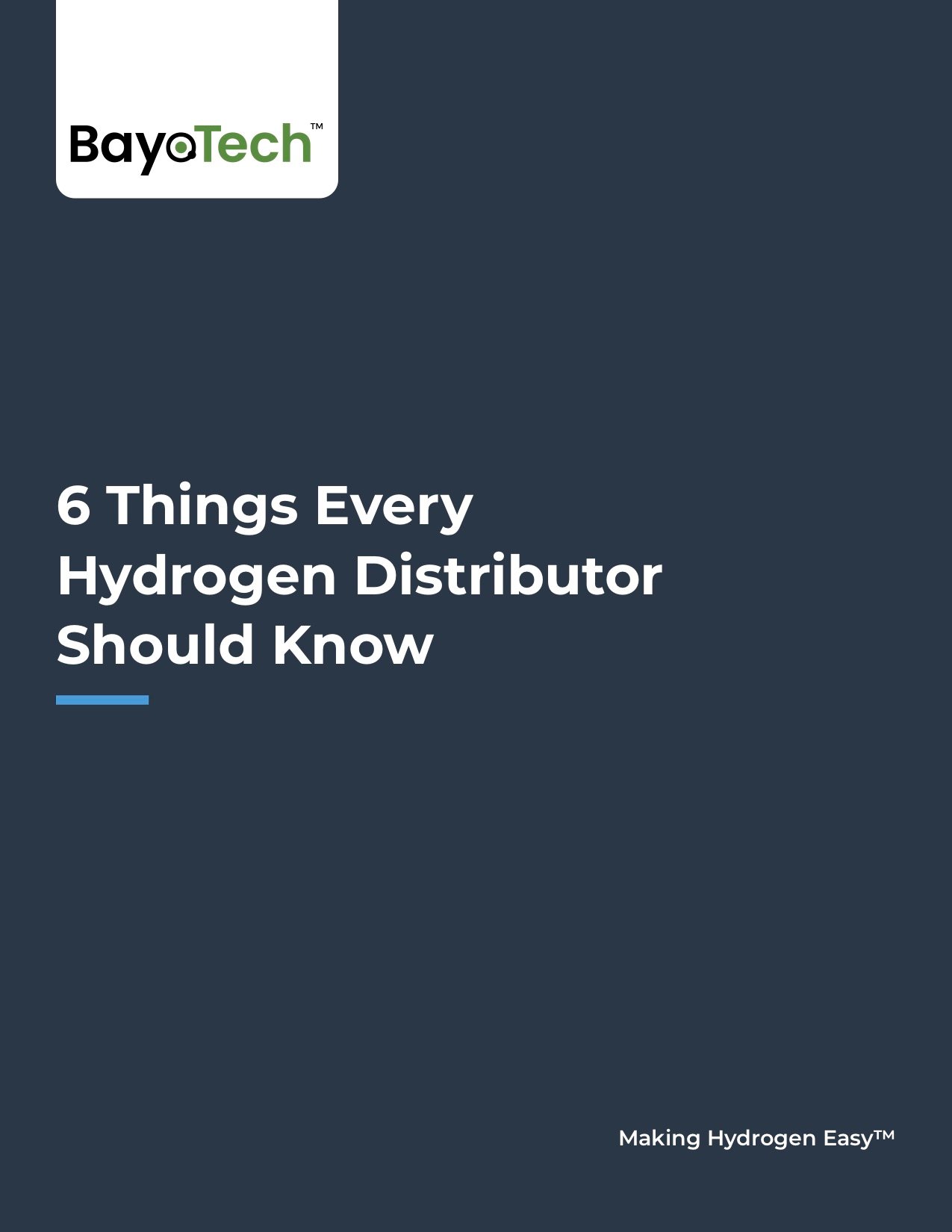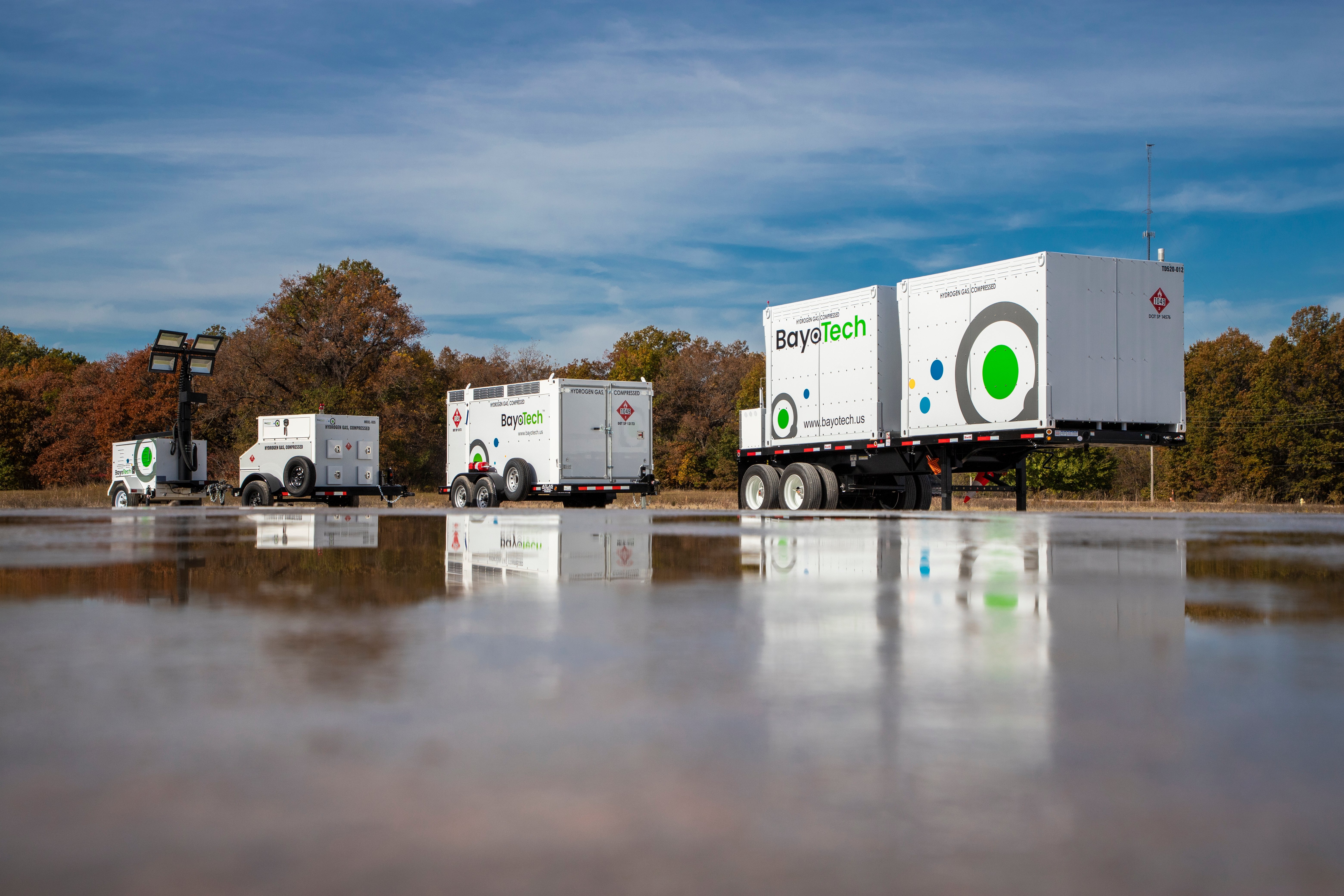Once again, BayoTech had the pleasure of exhibiting at the Advanced Clean Transportation Expo. Now in its 12th year, the event moved to Anaheim, California to accommodate unprecedented year-over-year growth. The event brought together more than 11,000 industry leaders and fleet operators to showcase the latest innovations and technologies in the zero-emission transportation industry.
With various government legislation being enacted at both the state and federal levels, the momentum of transitioning to zero-emission vehicles is becoming a leading focus for fleet operators across the country. This year, more than ever, it’s become apparent that hydrogen has firmly established itself as a viable alternative to diesel-powered and battery-electric vehicles, particularly for heavy-duty trucking, mass transit, and other heavy industrial equipment operations.
In this blog, we’ll discuss lessons learned at ACT Expo during our conversations with industry leaders.

Hydrogen Fuel Cell vs. Battery Electric
At ACT Expo, hydrogen was hailed as the future of clean fuel for heavy-duty trucking and mass transit. For the trucking industry specifically, a slew of announcements took place across the expo hall from companies like Nikola, Hyzon, Cummins, and more, revealing their next steps in providing fuel cell trucking options for fleet operators.
Here are just some of the hydrogen highlights that took place at ACT:
- Nikola Partners With Voltera To Build Up To 50 Stations For Hydrogen Trucks
- Accelera CEO Maps Out Company, Industry Journey Forward
- Hyundai Motor Premieres Commercialized Model of Its XCIENT Fuel Cell Tractor and Vision for Hydrogen Mobility in US
The tides have begun to change as focus drifts away from battery-electric trucks to a more flexible zero-emission solution for the heavy-duty industry.
A common theme we heard from fleet operators was that while battery electric vehicles have gained popularity in recent years, they aren’t viable for heavy-duty trucking and other heavy industrial equipment operations. One of the most significant drawbacks to battery-electric comes from its long charging times. For mass transit and long-haul trucking, this downtime eats into efficiency significantly which leads to lower financial return on their assets. On top of this, range anxiety of battery-electric has been affecting these industries as well. On the other hand, fuel cell electric vehicles provide quicker refueling, and companies like Nikola are addressing range anxiety by supporting ranges of up to 500 miles, making them a better alternative for these industries.
Availability and Distribution of Hydrogen
With all the excitement around fuel-cell vehicles, companies are ready to transition to fuel-cell power but don’t know where to get hydrogen fuel. One of the significant challenges facing customers in these industries is the availability and access to hydrogen. With most hydrogen production being centralized at extensive production facilities in select locations, the availability and cost of hydrogen evade many who are ready to take the plunge. These limitations affect their ability to test equipment and make hydrogen adoption difficult.
There are better solutions than centralized hydrogen production. Instead, distributed hydrogen hubs, like those deployed by BayoTech, are the future of hydrogen distribution and adoption. These hubs provide local hydrogen production strategically placed across the country close to demand. This approach eliminates the need for extensive transportation infrastructure and reduces transportation costs significantly, making hydrogen more affordable for fleet operators.
Legislation Supporting Hydrogen
ACT Expo attendees echoed the sentiment that new legislation has also significantly accelerated the adoption of hydrogen and fuel cell equipment. For example, California has passed new laws requiring the transition to zero-emission vehicles, which has spurred interest in alternatives to diesel-powered vehicles. California has also introduced incentives for purchasers of zero-emission vehicles that can provide up to $240,000 toward their purchase of fuel-cell vehicles. Additionally, the Inflation Reduction Act (IRA) and the Build Back Better Act (BBBA) provide significant funding for developing hydrogen infrastructure, fuel cell technology, and other clean energy initiatives. These incentives will help to make hydrogen a more accessible and viable option for heavy-duty trucking, mass transit, and other heavy industrial equipment operations.

Wrapping Up
At ACT Expo, industry leaders and fleet operators came together to discuss the latest innovations and technologies, with hydrogen being a significant focus this year. Throughout the four-day conference, common themes began to emerge.
- Fuel cell electric vehicles offer a better alternative to battery electric vehicles for many commercial transportation applications.
- Distributed hydrogen hubs are the future of hydrogen production and adoption.
- The right regulations and incentives are being put in place to support the acceleration of hydrogen adoption and fuel cell equipment.
This year reinforced that now, more than ever, ACT Expo is the place to discover the technologies, trends, and organizations driving economic and environmental fleet sustainability. BayoTech is proud to be at the forefront of this industry and will continue to provide scalable, reliable, and cost-effective hydrogen solutions to meet the needs of our current and future customers. See you next year in Las Vegas!




